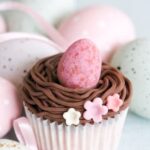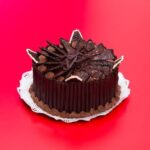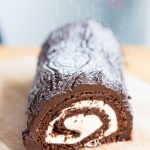Looking to learn how to make butterflies for cake decorating? Butterflies are a popular and enchanting addition to cake designs, adding a touch of whimsy and elegance.
Their delicate wings and vibrant colors can enhance the visual appeal of any cake, making it a perfect choice for various occasions from birthdays to weddings. In this article, we will explore the significance of incorporating butterflies into cake decorating, discuss the visual appeal and versatility of butterfly decorations, and provide step-by-step instructions for creating these beautiful edible embellishments.
When it comes to creating edible butterflies for cake decorating, there are essential tools and materials that you’ll need to have on hand. From fondant or gum paste to specialized cutters and food coloring, we’ll provide you with a comprehensive list of supplies along with tips on where to purchase or find them easily.
Once you have all the necessary items, you can begin choosing the right butterflies for your cake. We’ll offer tips on selecting butterfly designs that complement your cake’s theme and colors while also providing ideas for matching different butterfly sizes and styles with various cake sizes and designs.
In the following sections, we will dive into the process of making edible butterfly wings using fondant or gum paste. You’ll find detailed instructions on shaping, texturing, coloring, and attaching the delicate wings for a lifelike appearance.
Additionally, we’ll guide you through crafting the body and antennae of the butterfly along with suggestions for adding details such as eyes and other features to enhance realism. Finally, we’ll share tips for arranging and attaching the butterflies onto your cake as well as ideas for creating a stunning composition with these delicate decorations.
Tools and Materials Needed
Creating beautiful butterfly decorations for cake decorating requires a few essential tools and materials. To get started, you will need fondant or gum paste, a rolling pin, cutting tools such as small cookie cutters or a sharp knife, food coloring gels or dusts, and a clean work surface. Additionally, having a variety of brushes for painting and detailing will be helpful in adding intricate designs to the butterfly wings.
In addition to these basic supplies, it’s important to have a selection of butterfly-shaped cutters in various sizes and styles. This will give you the flexibility to create different looks for your cake designs. These cutters can usually be found at specialty baking stores, craft stores, or online shops that cater to cake decorators. If you prefer to make your own templates for cutting out butterfly shapes, sturdy cardstock paper can be used for this purpose.
When working with fondant or gum paste, it’s also useful to have cornstarch or powdered sugar on hand for dusting your work surface and preventing sticking. Finally, having a small palette knife or spatula for lifting delicate pieces and transferring them onto the cake is essential for achieving precise placement of your edible butterflies.
For those who are new to cake decorating or are seeking inspiration for their butterfly designs, there are numerous tutorials available online that provide guidance on using these tools and materials effectively. Whether you’re looking to create simple fluttering butterflies or intricate 3D representations, having the right supplies is key to achieving professional-looking results in your cake decorating endeavors.
Choosing the Right Butterflies for Your Cake
When it comes to choosing the right butterflies for your cake, there are several factors to consider in order to achieve a visually stunning and cohesive design. Whether you are creating a whimsical birthday cake or an elegant wedding cake, selecting butterfly designs that complement the theme and colors of the cake is essential. Here are some tips to help you choose the perfect butterflies for your cake.
Complementing the Cake’s Theme and Colors
One of the most important aspects of choosing butterflies for your cake is ensuring that they enhance the overall theme and color scheme. For example, if you are making a pastel-colored spring-themed cake, consider using vibrant and colorful butterfly designs to add a pop of color. On the other hand, for a more subtle and romantic wedding cake, delicate and understated butterfly designs in shades of white or ivory may be more appropriate.
Matching Butterfly Sizes and Styles With Cake Designs
Another consideration when choosing butterflies for your cake is matching their sizes and styles with the overall cake design. For larger cakes with ample space for decorations, you may opt for larger butterflies with intricate details. Alternatively, smaller cakes may benefit from smaller butterfly designs that are dainty and delicate. It’s also important to consider the style of the butterflies – whether they are realistic or stylized – to ensure that they align with the aesthetic of the cake.
By carefully selecting butterflies that complement the theme, colors, size, and style of your cake, you can create a harmonious and visually appealing design that will surely impress your guests. Remember to take into account these tips when choosing butterflies for your next cake decorating project.
Making Edible Butterfly Wings
When it comes to cake decorating, creating edible butterfly wings can add a touch of whimsy and elegance to any design. Making these delicate and realistic wings using fondant or gum paste may seem daunting at first, but with the right techniques and a bit of practice, you can achieve stunning results. Here’s a step-by-step guide on how to make edible butterfly wings for your cake decorating projects:
1. Roll out the fondant or gum paste: Start by rolling out your chosen medium (fondant or gum paste) on a clean surface dusted with powdered sugar to prevent sticking. Use a rolling pin to achieve an even thickness, then cut out the desired wing shapes using butterfly-shaped cookie cutters or templates.
2. Add texture and details: Once you have the wing shapes cut out, use various tools such as veining tools, ball tools, or even toothpicks to add texture and details to the wings. Create intricate patterns and vein-like lines to mimic the natural appearance of butterfly wings.
3. Color the wings: To bring your edible butterfly wings to life, use food coloring in gel or powder form to carefully paint the wings. Consider using a combination of colors to achieve a realistic gradient effect, and don’t be afraid to experiment with different shades for a more vibrant look.
4. Let the wings dry: Allow the painted wings to dry completely before handling them further. This will ensure that they hold their shape and color once attached to the cake.
By following these steps and experimenting with different shapes and colors, you can create beautiful edible butterfly wings that will take your cake decorating skills to new heights. Whether you’re working on a wedding cake, birthday cake, or any other special occasion creation, adding these delicate decorations is sure to impress your clients and guests alike.
Crafting the Body and Antennae
After successfully creating delicate and lifelike edible butterfly wings, the next step in making butterflies for cake decorating is crafting the body and antennae. This part of the process adds a touch of realism to the butterflies and brings them to life on the cake.
To craft the body and antennae, you will need to use a small amount of fondant or gum paste in a color that complements the wings. The body can be shaped by rolling a small piece of fondant or gum paste into an elongated oval shape, tapering it slightly at one end. Using a sharp tool, make small indentations along the length of the body to create a segmented appearance.
For the antennae, roll out two thin pieces of fondant or gum paste in a contrasting color to the butterfly‘s body. Gently curve each piece to create an “S” shape, and attach them to the head of the butterfly using edible glue or water. These delicate details will add realism and charm to your edible butterfly decorations.
Enhancing your butterflies with additional details such as eyes and other features is optional but can further elevate their appearance. Whether you choose to keep them simple or add intricate details, crafting the body and antennae is a crucial step in creating beautiful butterflies for cake decorating.
| Supplies | Tips |
|---|---|
| Fondant or Gum Paste | Use contrasting colors for added visual appeal |
| Sharp Tool | Create segmented appearance by making small indentations on body |
| Edible Glue/Water | Use sparingly to attach antennae securely |
Decorating the Cake With Butterflies
Once you have created a beautiful assortment of edible butterflies, it’s time to adorn your cake with these delicate decorations. Here are some helpful tips for arranging and attaching the butterflies to your cake:
- Positioning: Carefully plan where you want to place each butterfly on the cake. Consider the overall design and balance of the cake, as well as any focal points or areas that you want to highlight.
- Attaching: Use a small amount of edible glue or royal icing to attach the butterflies to the cake. Be gentle when handling the delicate decorations to prevent any damage to their wings or bodies.
- Composition: Create a visually pleasing composition by arranging the butterflies in a way that complements the shape and style of the cake. Experiment with different layouts and patterns to find the most appealing arrangement.
Now that you have adorned your cake with these stunning butterflies, step back and admire your work. The addition of these elegant decorations will surely enhance the overall aesthetic of your cake and leave a lasting impression on everyone who sees it. Enjoy this creative process and have fun experimenting with different ways to incorporate butterflies into your cake designs.
Tips for Storing and Preserving Edible Butterflies
Creating delicate and realistic butterflies for cake decorating is a time-consuming process, so it’s important to store and preserve the edible decorations properly. Once you have crafted your beautiful butterflies, you’ll want to ensure that they maintain their appearance and quality until they are ready to be used on the cake. One of the best ways to store edible butterflies is by keeping them in an airtight container at room temperature, away from direct sunlight and moisture.
Some specialized cake decorating shops also offer clear plastic containers specifically designed for storing edible decorations like butterflies. These containers provide a safe and secure environment for your delicate creations, protecting them from damage or breakage. If you don’t have access to these containers, you can also use regular airtight plastic or glass containers lined with parchment paper to prevent the butterflies from sticking to the surface.
Another important aspect of preserving edible butterflies is protecting them from humidity. Exposure to moisture can cause the delicate fondant or gum paste wings to become soft and lose their shape. To prevent this, make sure that the storage container is completely dry before placing the butterflies inside. Additionally, consider adding silica gel packets or rice grains to absorb any excess moisture in the container and keep the decorations dry and intact.
| Preservation Tips | Storage Suggestions |
|---|---|
| Keep in airtight container | Avoid direct sunlight and moisture |
| Use specialized plastic containers | Line regular containers with parchment paper |
| Absorb moisture with silica gel packets or rice grains | Protect from humidity |
Inspiration and Creative Ideas
In conclusion, creating edible butterflies for cake decorating is a beautiful and versatile way to enhance the overall design of your baked creations. By following the tips and techniques outlined in this article, you can craft delicate and realistic butterfly decorations that will surely impress your friends, family, and clients.
The key to successful butterfly cake decorating lies in choosing the right tools and materials, selecting the perfect butterfly designs, mastering the art of creating lifelike wings and bodies, and creatively arranging them on the cake.
As you embark on your journey to create stunning butterfly-adorned cakes, remember to let your creativity shine. Don’t be afraid to experiment with different butterfly sizes, styles, colors, and arrangements to find what best suits your cake themes and designs. Whether it’s a whimsical birthday cake or an elegant wedding cake, there are endless possibilities for incorporating butterflies into your creations.
So go ahead and explore the magical world of butterfly cake decorating. With dedication and practice, you’ll soon become adept at crafting these delicate edible decorations that will elevate your cakes to new heights of beauty. Let your imagination take flight as you bring these graceful creatures to life on your delectable desserts.
Frequently Asked Questions
How to Make Edible Butterflies for Cake?
To make edible butterflies for a cake, you can use gum paste or fondant in various colors. Roll out the paste or fondant to a thin, even layer and use butterfly-shaped cookie cutters to cut out the shapes. Then, gently fold the wings upward to create a 3D effect and let them dry before placing them on the cake.
How Do You Make a Cake Look Like a Butterfly?
Making a cake look like a butterfly involves decorating it with colorful frosting and adding edible butterfly decorations made from fondant or gum paste. Start by frosting the entire cake with a base color, then add details like butterfly wings and antennae made from colorful frosting.
You can also pipe on intricate designs to mimic the patterns of a butterfly’s wings.
How to Make Butterflies Frosting?
To make butterfly frosting, start by preparing a batch of buttercream frosting in your desired colors. Use gel food coloring for vibrant shades.
Next, fill piping bags with small round tips to create dots for the body of the butterflies, as well as larger tips for creating the outline and details of their wings. Practice on parchment paper before piping directly onto your baked goods for best results.

Welcome to my blog about home and family. This blog is a place where I will share my thoughts, ideas, and experiences related to these important topics. I am a stay-at-home mom with two young children. I hope you enjoy reading it! and may find some helpful tips and ideas that will make your home and family life even better!





